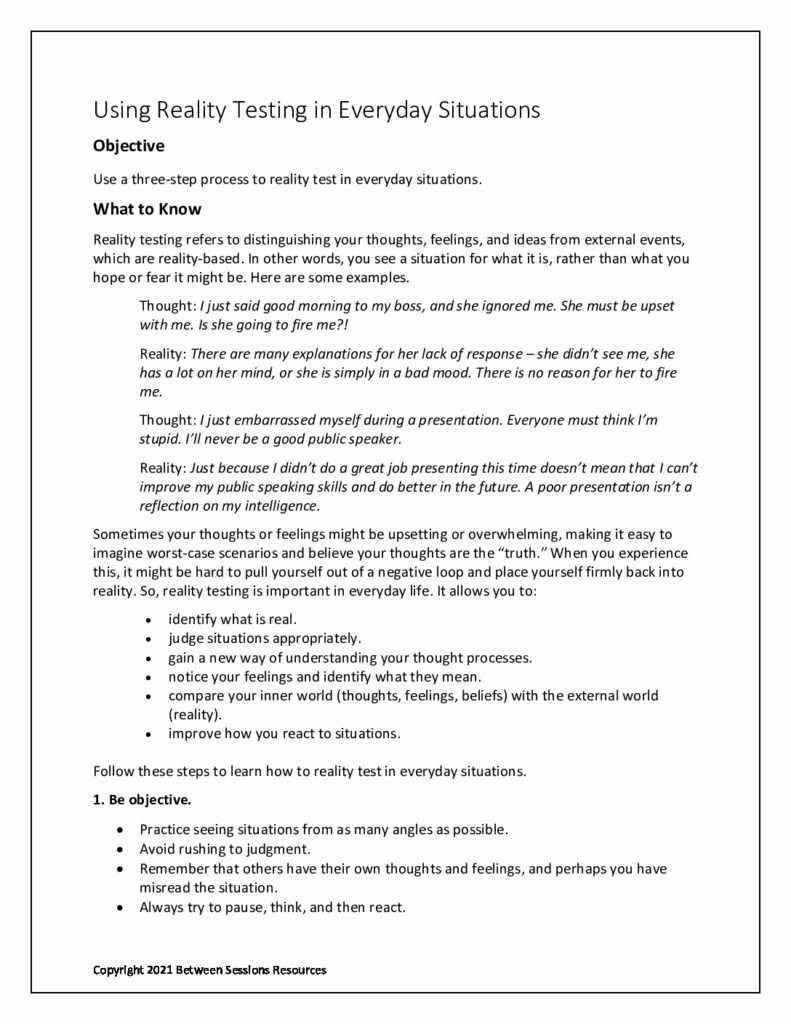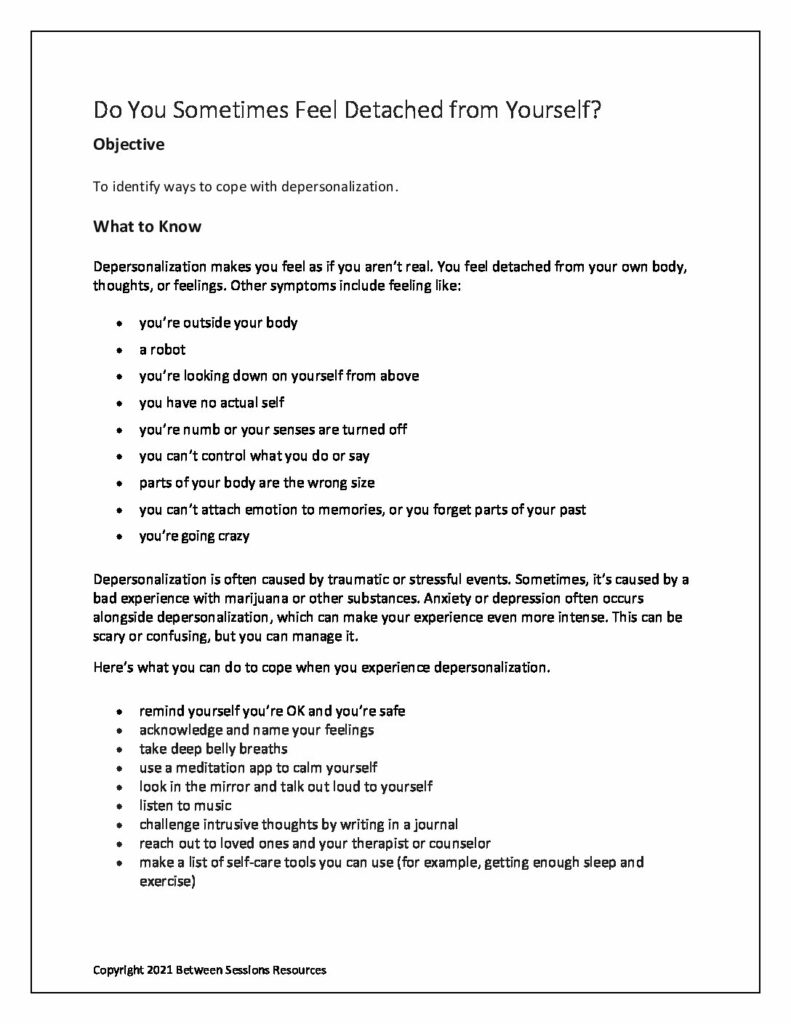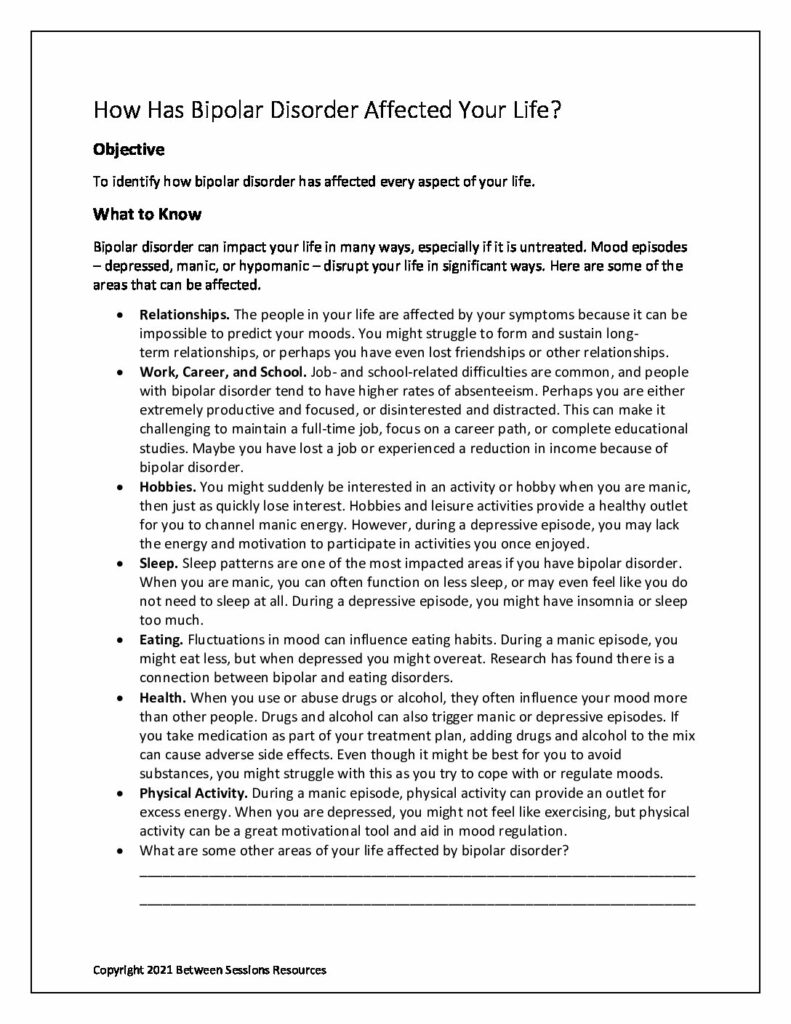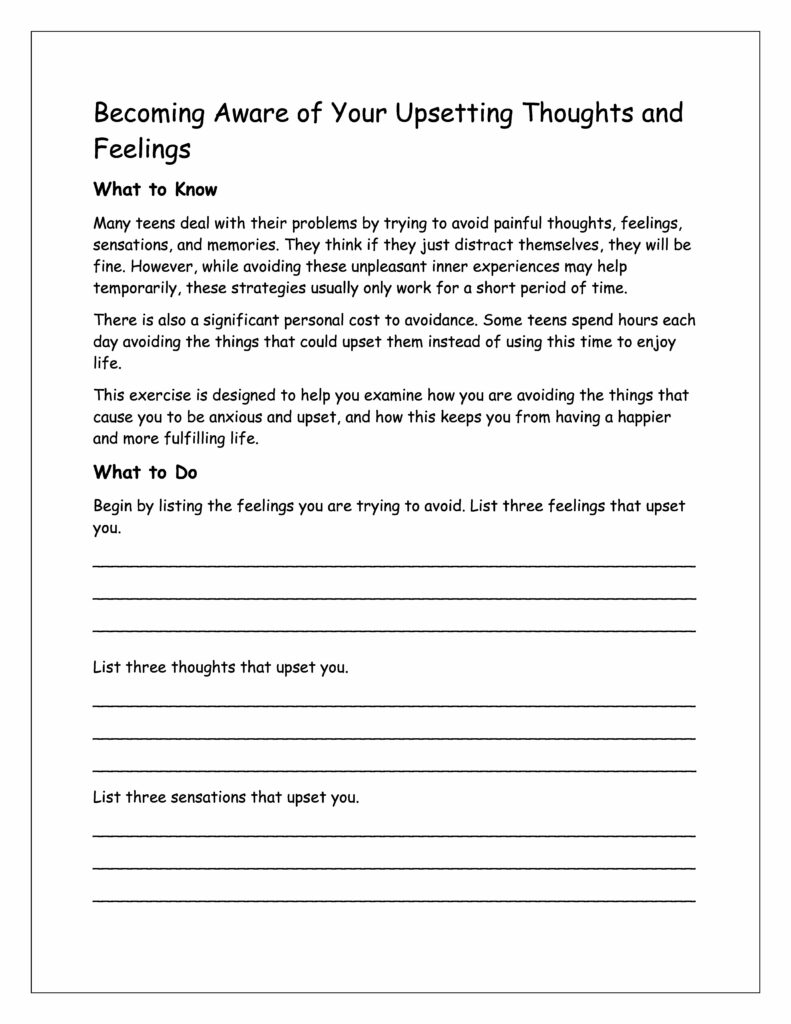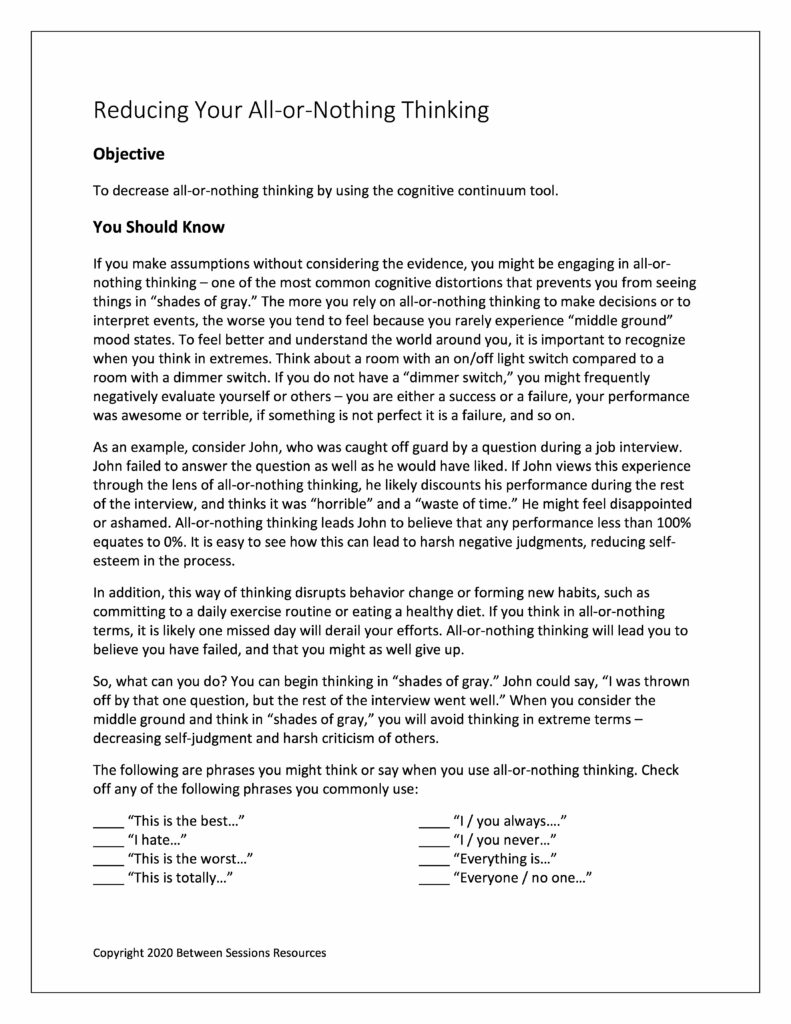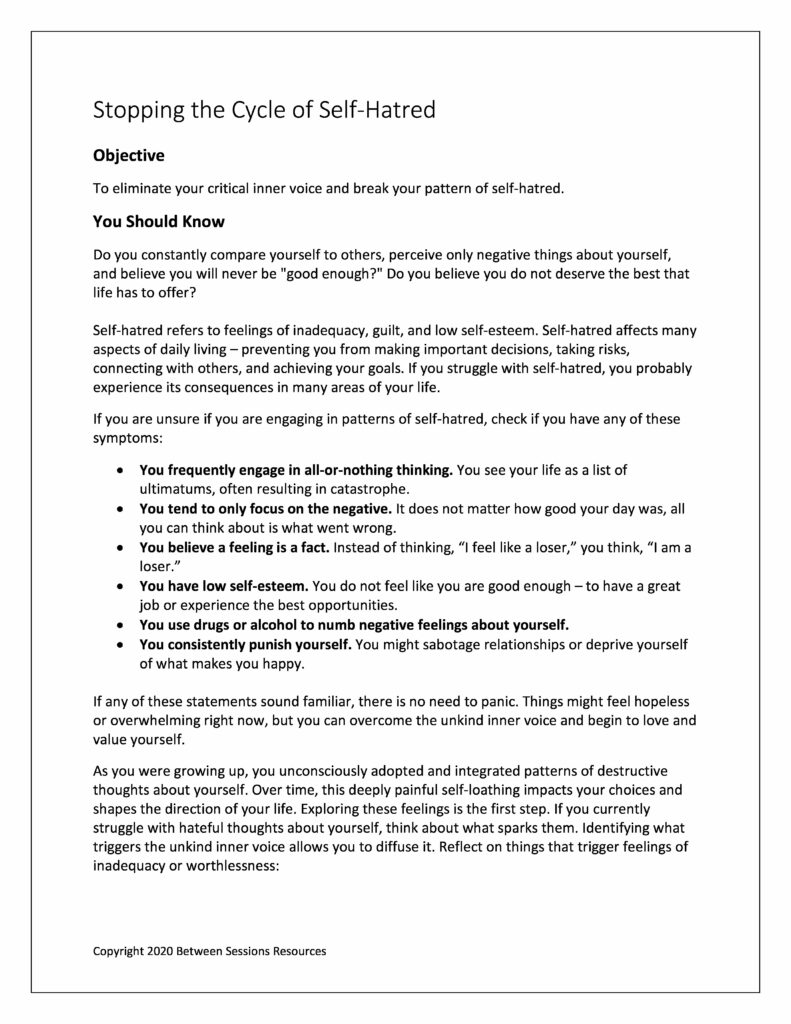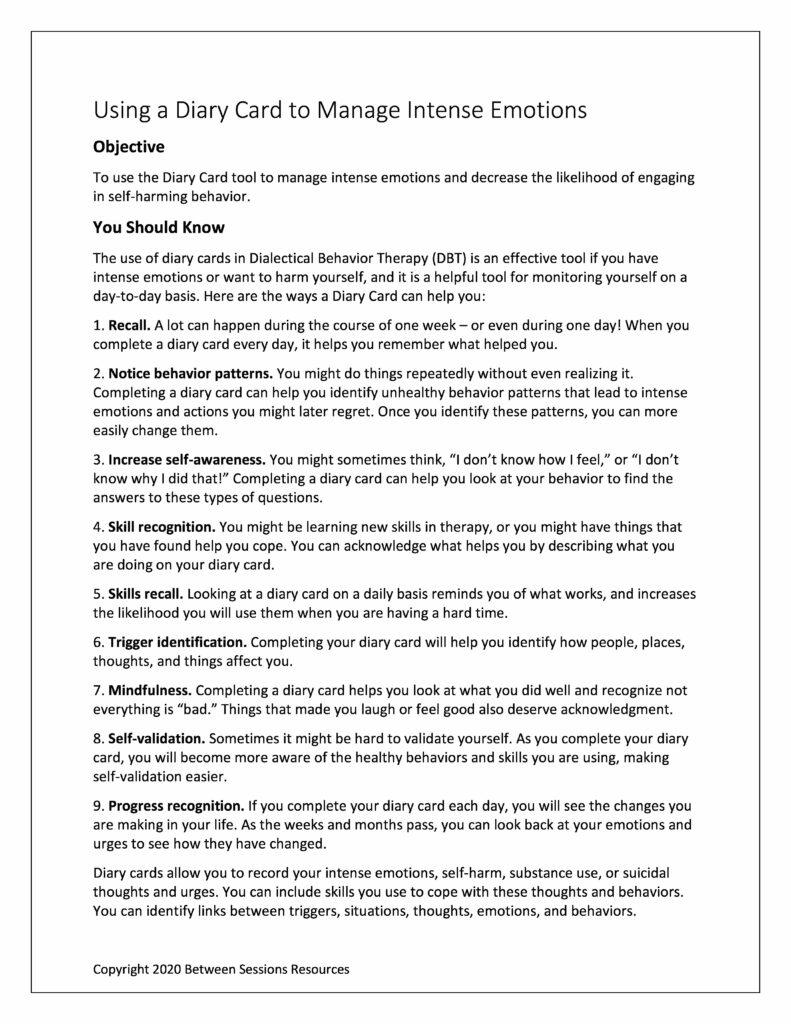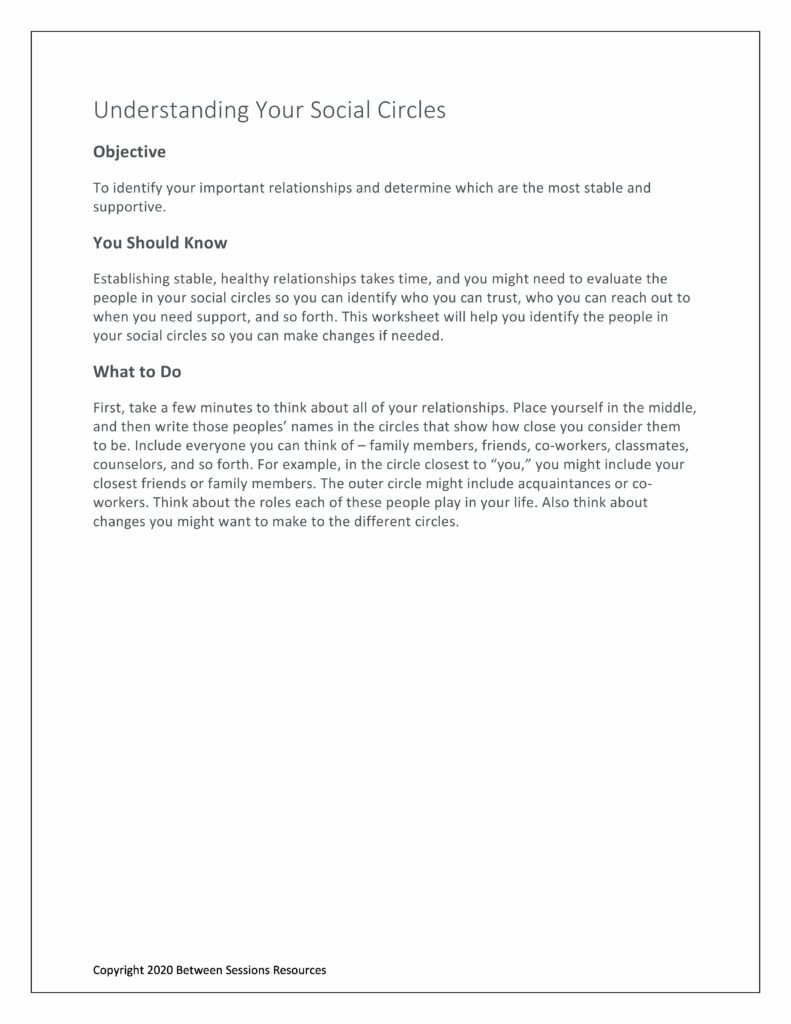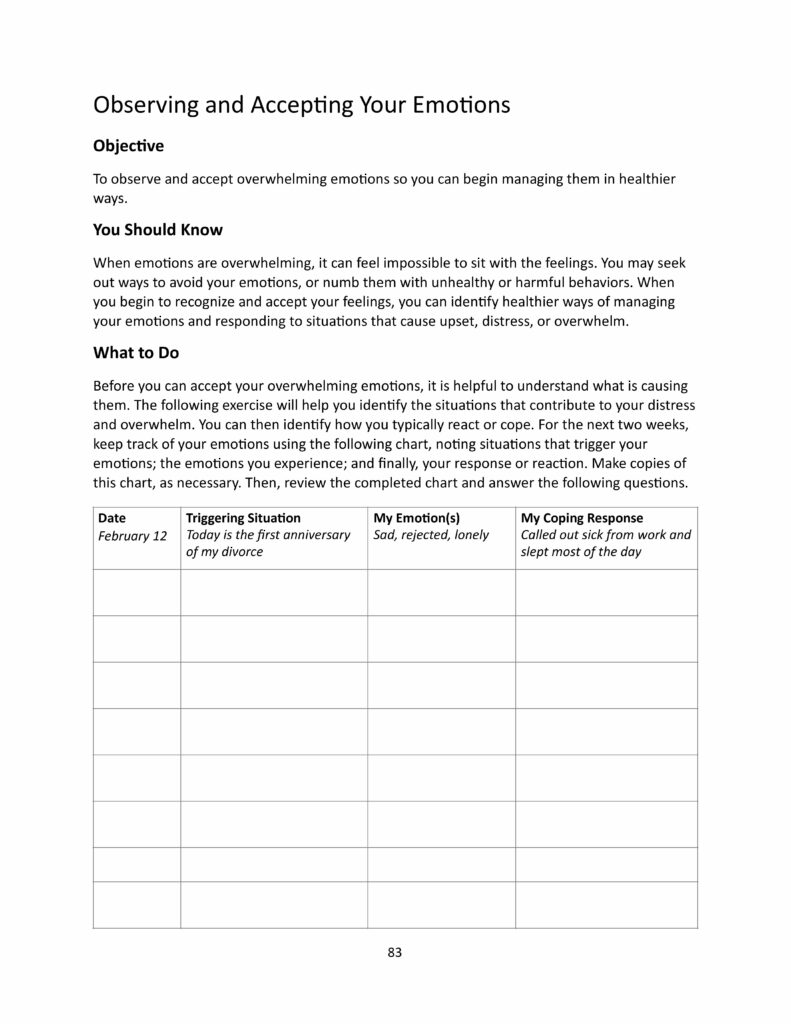Clients learn to re-orient their thinking. (1121, problem-solving, solutions, depression, anxiety)
This worksheet teaches a 3-step process to help people judge situations appropriately, gain insight into their thought processes, compare their inner world to the external world, and more. It is designed to help people be objective, seek the perspective of others, and pay attention to reactions. (1121. Borderline Personality Disorder, Bipolar Disorder, anxiety disorders, awareness)
This worksheet is designed to help people cope with depersonalization, when a person has an experience of feeling detached from his/her own body, thoughts, or feelings. The worksheet presents a variety of techniques to cope with this feeling and a chart to keep track of whether these techniques are successful. (1121, depersonalization, PTSD, Borderline Personality Disorder, psychosis, psychotic)
This worksheet is intended to help people understand how bipolar disorder has affected them in areas like relationships, work, sleep, physical activity, and so on. A chart asks people to think about each area and consider the healthy and unhealthy ways they cope with bipolar disorder. (1021. bipolar disorder, coping)
This worksheet helps people examine their upsetting thoughts and feelings rather than trying to avoid them. (0621, anxiety, worry, avoidance, simple solutions)
This worksheet helps people understand that their judgments about others are on a continuum, rather than on one extreme or another. (anxiety, Bipolar Disorder, Personality Disorder, depression, 1020)
This worksheet is designed to help people become aware of their critical inner voice that can lead to self-hatred. The worksheet asks people to identify their self-statements and change them to more realistic and forgiving statements. (depression, self-criticism, automatic thoughts, CBT, 100720)
This worksheet explains the use of the Diary Card, a DBT tools used to help people control intense emotions, using self-awareness, mindfulness, trigger identification, and so on. (DBT, self-harm, emotional-regulation, 1020)
This worksheet is designed to help people understand their relationships. It is intended to help people see that there are ways to build more stable relationships built on trust and understanding. (Personality Disorder, Bipolar, Narcissistic Personality Disorder, relationships, community, 0920)
This worksheet is designed to help people learn to observe and better understand their overwhelming emotions and the way they cope with them. (DBT, Emotional Regulation, 0320)


